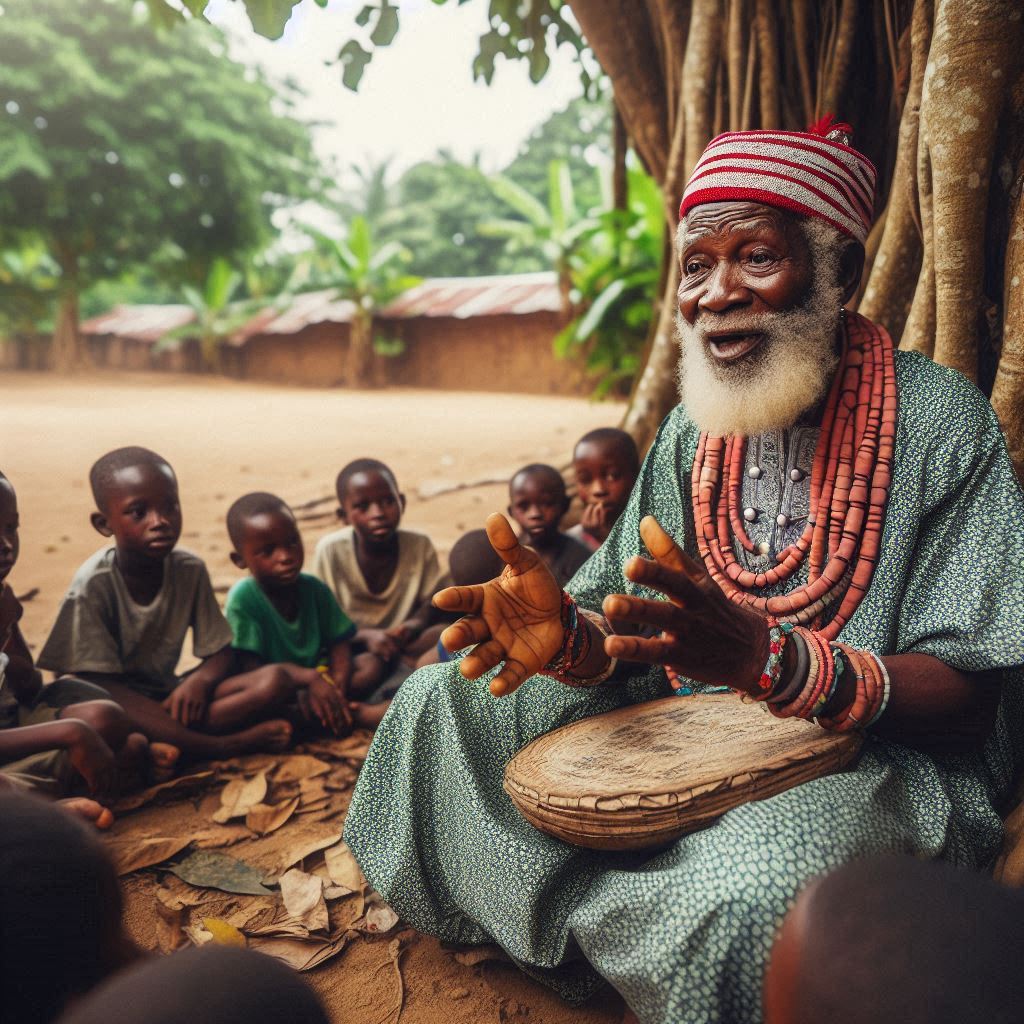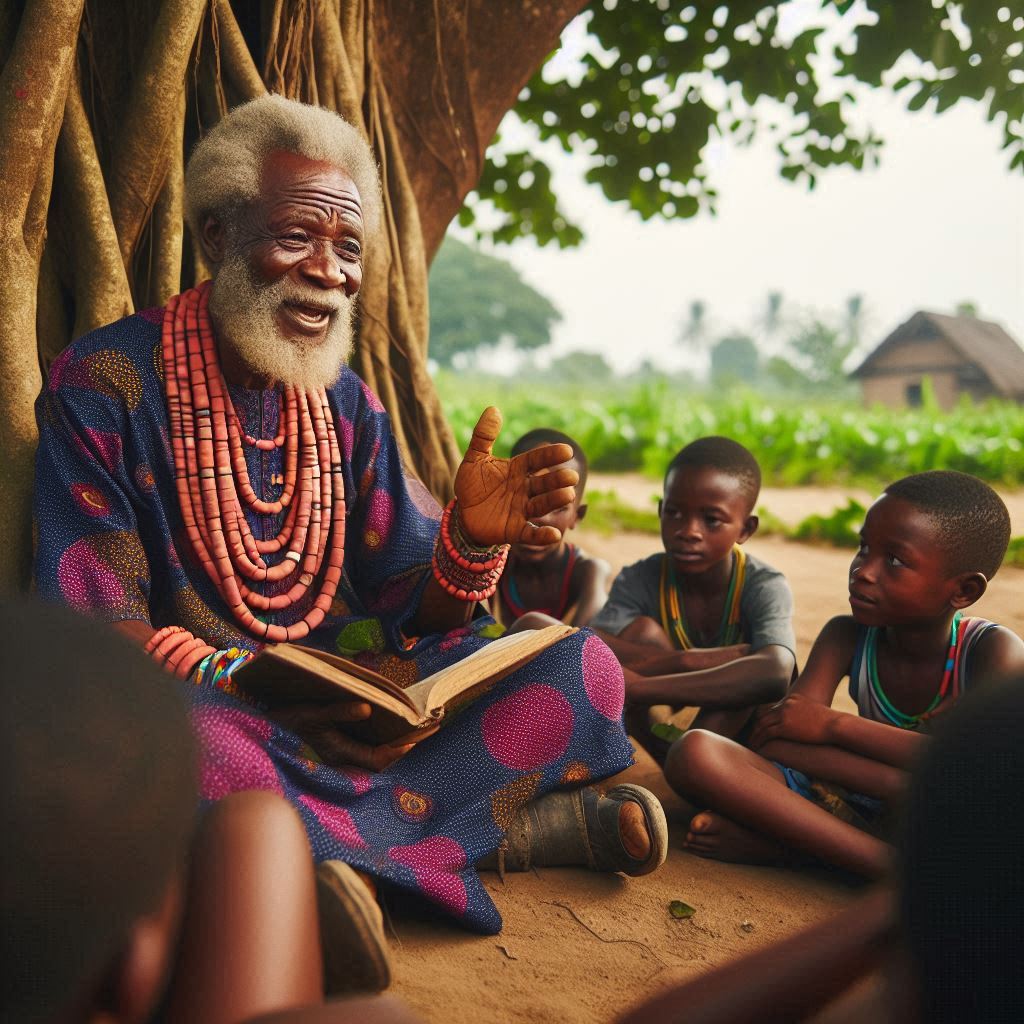Introduction
Nigeria, a country in West Africa, boasts a rich linguistic diversity. With over 500 languages spoken, it is one of the most linguistically diverse countries in the world. Nigerian Languages Historical Evolution and Changes
This vast array of languages reflects the country’s complex history, rich cultural heritage, and diverse ethnic groups.
Linguistic Diversity in Nigeria
The linguistic landscape in Nigeria is a tapestry of various languages and dialects. Major languages include Hausa, Yoruba, Igbo, and Fulfulde.
Each of these languages has several dialects, adding to the complexity. Minority languages, though smaller in speaker numbers, also play a crucial role in the country’s cultural mosaic.
These languages, while diverse, share commonalities influenced by historical migrations and interactions among ethnic groups.
The Role of Languages in Cultural Heritage
Languages are not just means of communication; they are vital carriers of cultural heritage. In Nigeria, each language encapsulates unique traditions, values, and histories.
Oral traditions, folktales, and proverbs in various Nigerian languages preserve ancestral wisdom and societal norms. They provide insights into the ways of life of different communities.
Preservation of Cultural Identity
Language is central to preserving cultural identity. In Nigeria, speaking one’s native language is a strong marker of ethnic identity and pride.
For many communities, their language connects them to their ancestors and their cultural roots. It is through language that cultural practices, ceremonies, and rituals are passed down through generations.
Impact of Colonialism on Nigerian Languages
Colonialism significantly impacted Nigerian languages. English, the colonial language, became the official language of Nigeria. This shift led to the marginalization of many indigenous languages.
However, Nigerian languages have shown resilience. Many communities continue to speak and teach their native languages, ensuring their survival.
Modern Challenges and Efforts in Language Preservation
Today, globalization and urbanization pose new challenges to the survival of Nigerian languages. Younger generations are increasingly adopting English, sometimes at the expense of their native languages.
This trend threatens the continuity of linguistic heritage. However, there are ongoing efforts to revitalize and preserve Nigerian languages.
Educational programs, cultural festivals, and media initiatives promote the use and teaching of indigenous languages.
The Importance of Multilingualism
Multilingualism in Nigeria fosters social cohesion and mutual understanding among different ethnic groups. It encourages respect for cultural diversity and promotes national unity.
By embracing their linguistic heritage, Nigerians can celebrate their rich cultural diversity while building a cohesive society.
In fact, The linguistic diversity of Nigeria is a testament to its rich cultural heritage. Nigerian languages are vital in preserving cultural identity and transmitting ancestral knowledge.
Despite modern challenges, efforts to preserve and promote these languages continue.
Embracing and revitalizing Nigerian languages will ensure the survival of Nigeria’s rich cultural heritage for future generations.
Historical Evolution of Nigerian Languages
Tracing the Origins of Nigerian Languages
Nigerian languages have rich, ancient roots that reflect the country’s diverse cultural tapestry. The origins of these languages can be traced back thousands of years.
Early inhabitants of Nigeria developed distinct linguistic groups as they settled across various regions. Archaeological findings reveal that human communities flourished in Nigeria as early as 9000 BC.
Over time, these communities developed unique languages, influenced by their environment and social structures.
Nigeria’s linguistic diversity is remarkable. It is home to over 500 languages, classified into three major language families: Afroasiatic, Nilo-Saharan, and Niger-Congo.
The Niger-Congo family is the most widespread, covering much of the country. Within this family, the Benue-Congo subgroup is particularly prominent, encompassing languages such as Yoruba, Igbo, and Edo.
The Afroasiatic family includes languages like Hausa, spoken widely in northern Nigeria. The Nilo-Saharan family, though less represented, includes languages spoken by smaller ethnic groups.
Influence of Migration on Language Evolution
Migration has played a crucial role in shaping Nigerian languages. Throughout history, various waves of migration brought new linguistic influences.
The Bantu migrations, which began around 2000 BC, significantly impacted the linguistic landscape. Bantu-speaking peoples moved across sub-Saharan Africa, introducing new languages and dialects.
In Nigeria, the arrival of Bantu speakers contributed to the evolution of many contemporary languages.
Another significant migration event was the Fulani expansion in the 18th and 19th centuries. The Fulani, originally from the Senegal River Valley, spread across West Africa, including Nigeria.
As they migrated, they brought their language, Fulfulde, which influenced local languages through contact and intermarriage.
The Fulani expansion also facilitated the spread of Islam, further impacting linguistic and cultural dynamics.
Contact with Other Civilizations
Contact with other civilizations profoundly influenced Nigerian languages. Trade and interaction with North Africa and the Arab world introduced new linguistic elements.
The trans-Saharan trade routes facilitated exchanges between West Africa and the Mediterranean. Through these interactions, Arabic words and phrases were integrated into Nigerian languages, particularly in the north.
Colonialism also left an indelible mark on Nigerian languages. During the colonial period, English became the official language, used in administration, education, and trade.
This imposition of English led to significant changes in the linguistic landscape. Indigenous languages adapted by incorporating English words and structures, creating new dialects and pidgins.
Contemporary Linguistic Changes
Today, Nigerian languages continue to evolve rapidly. Urbanization and globalization are major drivers of linguistic change. Cities like Lagos and Abuja serve as melting pots where different languages converge.
This urban interaction leads to the creation of hybrid languages and slang, reflecting the dynamic nature of Nigerian society.
The digital age further accelerates linguistic evolution. Social media and technology introduce new vocabulary and expressions.
Young Nigerians, in particular, blend traditional languages with modern influences, creating a vibrant linguistic tapestry. This ongoing evolution highlights the resilience and adaptability of Nigerian languages.
Furthermore, the historical evolution of Nigerian languages is a testament to the country’s rich cultural heritage.
From ancient origins to contemporary changes, these languages reflect the dynamic interplay of migration, contact, and innovation.
Read: The Future of Psychology Education in Nigeria
Colonial Impact on Nigerian Languages
Introduction of European Languages During Colonialism
Colonialism profoundly influenced Nigerian languages. European powers, particularly the British, introduced their languages. English became the official language, overshadowing indigenous tongues.
Missionaries played a key role in this linguistic shift. They established schools where English was the medium of instruction. This educational strategy facilitated the spread of English among Nigerians.
The colonial administration also used English for governance. This practice marginalized native languages in official domains.
Colonialists perceived indigenous languages as inferior. They believed English was superior for administration and education. This attitude led to the systematic devaluation of local languages.
Indigenous people were encouraged to learn English for socioeconomic advancement. This created a bilingual society where English held higher prestige. Over time, proficiency in English became associated with education and status.
Effects of Language Policies on Indigenous Languages
Colonial language policies significantly affected Nigerian languages. These policies prioritized European languages, particularly English, over indigenous ones.
Schools taught English as the primary language. Indigenous languages were often excluded from formal education. This policy led to a decline in the use of native languages.
Many children grew up speaking English more fluently than their mother tongues.
The emphasis on English undermined the transmission of indigenous languages. Parents encouraged their children to speak English to enhance their prospects.
Consequently, native languages experienced reduced usage in daily life. The erosion of linguistic diversity became evident over time. Some languages faced the threat of extinction due to dwindling speakers.
Colonial policies also affected the cultural heritage linked to languages. Many cultural expressions and oral traditions are language-dependent.
The decline of indigenous languages threatened the preservation of these cultural elements. With fewer people speaking native tongues, cultural practices risked being forgotten.
Efforts to document indigenous languages were insufficient during colonial times. Colonial authorities showed little interest in preserving these languages.
Consequently, many languages lacked written forms or comprehensive records. This neglect further endangered the survival of indigenous languages.
Post-Colonial Language Dynamics
The legacy of colonial language policies persists in Nigeria. English remains the official language. It is the medium of instruction in schools and the language of government and commerce.
Indigenous languages continue to face challenges in gaining equal status. Efforts to revive and promote native languages have emerged post-independence. However, these initiatives face significant obstacles.
Bilingual education models aim to balance English and indigenous languages. Some schools now teach local languages alongside English.
These efforts seek to preserve linguistic diversity and cultural heritage. However, achieving widespread acceptance and implementation is challenging.
Overall, Colonialism profoundly impacted Nigerian languages. The introduction of European languages, especially English, reshaped linguistic dynamics.
Colonial language policies marginalized indigenous languages, leading to their decline. The effects of these policies are still felt today. Efforts to revive native languages are ongoing but face numerous challenges.
Preserving linguistic diversity remains a crucial goal for Nigeria’s cultural and linguistic heritage.
Read: Bridging the Gap in Nigerian Mental Health Services
Changes in Nigerian Languages
Nigerian languages have undergone significant changes over time. This evolution is influenced by various modern factors. These changes have impacted the way Nigerians communicate in their native languages.
Modern Influences on Nigerian Languages
Modern influences have greatly shaped Nigerian languages. Technology is a major factor. The advent of the internet introduced new vocabulary.
Many Nigerian languages have incorporated tech-related terms. Words like “email” and “internet” have local variations.
Urbanization is another key influence. As cities expand, languages mix more frequently. Urban areas are melting pots of diverse ethnic groups.
This leads to a blend of languages and dialects. New slang and colloquial expressions emerge from these interactions.
Media and entertainment also play a crucial role. Nigerian movies and music incorporate multiple languages. Pidgin English, a lingua franca, is widely used in entertainment.
It borrows elements from various Nigerian languages. This fusion makes it accessible to a broader audience.
Education systems contribute to language changes. English is the medium of instruction in Nigerian schools. This affects how native languages are spoken and written.
Many young Nigerians are more fluent in English. This fluency influences their use of indigenous languages.
Adoption of Foreign Words and Expressions
Foreign words have found their way into Nigerian languages. This adoption is most visible in urban centers. English words are frequently incorporated into daily conversations. For example, “computer” and “telephone” are used without translation.
Colonial history has a lasting impact. The British colonized Nigeria, leaving English as an official language. Consequently, English words permeate Nigerian languages. This blending is evident in business and administration contexts.
Globalization further accelerates this process. International trade introduces new products and concepts. Words associated with these are adopted into local lexicons. For instance, “pizza” and “hamburger” are now common in Nigerian languages.
Cultural exchanges also play a part. Nigerians travel abroad for education and work. They return with new experiences and vocabulary. These new words are integrated into their native languages. This is especially true among the youth.
Social media is a significant driver of language change. Platforms like Twitter and Facebook are predominantly in English. Nigerians interact globally through these platforms.
This interaction introduces new phrases and expressions. They are quickly absorbed into everyday speech.
Basically, Nigerian languages are dynamic and constantly evolving. Modern influences shape how these languages develop. Technology, urbanization, media, education, and globalization all contribute.
The adoption of foreign words and expressions reflects Nigeria’s global connections. Despite these changes, Nigerian languages retain their unique identities. They continue to adapt, ensuring their relevance in a changing world.
Read: How to Start a Private Psychology Practice in Nigeria
Transform Your Career with Expert Guidance
Get personalized mentorship consulting that’s tailored to your unique path. Our expert advice is actionable and exclusive.
Get Started
Language Revitalization Efforts
Initiatives to Preserve and Promote Indigenous Languages
Language revitalization in Nigeria is a growing and necessary movement. Several initiatives aim to preserve and promote indigenous languages.
Non-governmental organizations (NGOs) play a crucial role in these efforts. They organize language workshops and cultural festivals. These events celebrate and teach native languages to younger generations.
The government also supports language revitalization through policy measures. For instance, some states have mandated the teaching of indigenous languages in schools.
This policy ensures children learn their mother tongues alongside English. Local communities also contribute significantly. They create language clubs and heritage centers to foster language use.
Digital platforms have emerged as powerful tools for language preservation. Online dictionaries and language learning apps make indigenous languages accessible.
Social media campaigns highlight the beauty and importance of these languages. They encourage people to speak and use their native tongues daily.
Academics and linguists document endangered languages meticulously. They publish dictionaries, grammar guides, and language courses.
These resources ensure the survival of languages for future generations. Collaborative projects between universities and communities are vital. They provide comprehensive language documentation and teaching materials.
Cultural festivals and storytelling sessions are also essential. They showcase traditional narratives and oral histories.
These events reinforce the cultural significance of indigenous languages. They attract wide participation from all age groups.
Importance of Language Education in Schools
Integrating indigenous languages into school curricula is vital. It fosters cultural identity and linguistic diversity. When children learn in their mother tongues, they understand concepts better.
This improves overall academic performance and cognitive development.
Multilingual education has several benefits. It enhances communication skills and promotes social cohesion.
Children who speak multiple languages are more adaptable and open-minded. They appreciate cultural differences and respect diverse perspectives.
Language education in schools also combats language extinction. Many Nigerian languages are at risk of disappearing.
Teaching these languages to young students ensures their continued use and survival. Schools become centers of cultural transmission and preservation.
Moreover, language education strengthens community bonds. It connects children with their heritage and ancestors. It instills pride in their cultural identity and history. This connection fosters a sense of belonging and self-worth.
Government policies supporting multilingual education are crucial. They provide the necessary framework and resources. Training teachers in indigenous languages is essential. Qualified educators can effectively teach and inspire students.
Community involvement is also vital in language education. Parents and elders can assist in teaching and mentoring. Their participation enriches the learning experience and ensures cultural accuracy.
Genarally, revitalizing Nigerian languages requires collective effort. Initiatives to preserve and promote these languages are essential.
Integrating indigenous languages into schools plays a critical role. It ensures linguistic diversity, cultural identity, and academic success. Together, these efforts safeguard Nigeria’s rich linguistic heritage for future generations.
Read: The Role of Psychology in Nigerian Corporate Sector
Future Prospects for Nigerian Languages
Challenges Facing Nigerian Languages in the Digital Age
Nigerian languages face significant challenges in the digital age. The dominance of global languages like English and French is a major issue.
These languages overshadow indigenous ones in media and online platforms. As a result, younger generations are less inclined to use their native languages.
Another challenge is the lack of digital resources for Nigerian languages. There are few online dictionaries, translation tools, and educational materials available. This scarcity hampers language learning and usage in the digital sphere.
Additionally, there’s limited representation of Nigerian languages in technology. Many software applications, social media platforms, and websites do not support these languages.
This exclusion makes it difficult for speakers to use their native languages online.
Economic factors also play a role. Developing digital tools and resources for Nigerian languages requires funding and expertise.
Unfortunately, there is often insufficient investment in these areas. Without financial support, it is challenging to develop and maintain digital resources.
The digital divide exacerbates these problems. Many Nigerians lack access to the internet and digital devices. This gap further restricts the use and development of Nigerian languages in the digital realm.
Furthermore, there is a shortage of linguistic data for Nigerian languages. High-quality language data is essential for creating digital tools and applications.
The limited availability of such data hinders technological advancement for these languages.
Opportunities for Language Revitalization and Preservation
Despite these challenges, there are opportunities for revitalizing and preserving Nigerian languages. Digital technology can play a crucial role in this process. Online platforms can help document and share linguistic resources widely.
Social media offers a powerful tool for promoting Nigerian languages. Platforms like Facebook, Twitter, and Instagram can be used to share content in indigenous languages. This exposure can encourage more people to use and learn these languages.
Educational technology presents another opportunity. E-learning platforms can offer courses and materials in Nigerian languages. This approach can help people learn their native languages conveniently and effectively.
Collaborations between linguists and technologists can yield significant benefits. By working together, they can develop digital tools tailored to Nigerian languages. These tools can include language learning apps, dictionaries, and translation services.
Government support is also vital. Policies that promote the use of Nigerian languages in schools and media can make a big difference. Official recognition and funding can drive initiatives that support language revitalization.
Community involvement is crucial too. Grassroots movements can promote the use of indigenous languages in daily life. Community-driven projects can document and preserve oral traditions and local dialects.
Moreover, international organizations can contribute to these efforts. Organizations like UNESCO can provide funding and expertise for language preservation projects. Global support can amplify local efforts to save and promote Nigerian languages.
In general, while Nigerian languages face significant challenges in the digital age, there are many opportunities for their revitalization and preservation.
By leveraging technology, social media, education, collaboration, government policies, community involvement, and international support, these languages can thrive in the modern world.
Conclusion
Recap of the Historical Evolution and Changes in Nigerian Languages
Nigerian languages have experienced significant changes over centuries. Indigenous languages formed the foundation of Nigeria’s diverse linguistic landscape.
Colonial influence introduced new dynamics, significantly impacting the evolution of Nigerian languages. English became the official language, creating a bilingual society with complex linguistic interactions.
Pre-colonial Nigeria was a mosaic of languages and dialects. Each ethnic group had its unique linguistic identity. This diversity showcased Nigeria’s rich cultural heritage.
The arrival of colonial powers marked a turning point. Colonial authorities imposed English, reshaping the linguistic landscape. Indigenous languages adapted, incorporating loanwords and new syntactic structures.
Post-independence Nigeria witnessed further linguistic evolution. The government recognized major indigenous languages, promoting them in education and media.
Despite this recognition, English remained dominant in official and business contexts. Urbanization and migration fostered language contact, resulting in hybrid languages like Nigerian Pidgin.
The digital age introduced new changes. Social media and technology created platforms for indigenous language expression. Younger generations began revitalizing their linguistic heritage online.
However, many Nigerian languages face extinction threats. Globalization and urbanization contribute to the decline of lesser-spoken languages.
Call to Action for Preserving and Celebrating Linguistic Diversity in Nigeria
Nigeria’s linguistic diversity is a valuable cultural asset. It represents centuries of history, identity, and heritage. Preserving this diversity requires concerted efforts from individuals, communities, and the government.
First, individuals should take pride in their linguistic heritage. Parents should teach their children indigenous languages. Schools should incorporate local languages into their curricula.
This approach ensures younger generations appreciate and maintain their linguistic roots.
Communities play a crucial role in language preservation. Local initiatives can document and promote endangered languages. Cultural festivals and events can celebrate linguistic diversity, fostering community pride and unity.
The government must implement robust language policies. Support for indigenous language media can enhance visibility and usage.
Funding for language research and documentation is essential. Legislative measures should protect endangered languages, ensuring their survival.
Technology can be a powerful ally in language preservation. Digital platforms can host content in indigenous languages. Social media campaigns can raise awareness and encourage language use. Mobile apps can facilitate language learning and practice.
Collaboration with international organizations can provide additional support. UNESCO and other bodies can offer resources and expertise. Joint efforts can strengthen initiatives aimed at preserving linguistic diversity.
Ultimately, preserving Nigerian languages is a collective responsibility. It requires commitment, creativity, and collaboration. By valuing and promoting linguistic diversity, Nigeria can safeguard its rich cultural heritage for future generations.
In closing, the historical evolution of Nigerian languages reflects a dynamic interplay of factors. Colonialism, urbanization, and globalization have shaped the current linguistic landscape.
However, proactive measures can ensure the preservation and celebration of Nigeria’s linguistic diversity. Every Nigerian has a role to play in this crucial endeavor. Let us embrace our linguistic heritage and work together to preserve it.




